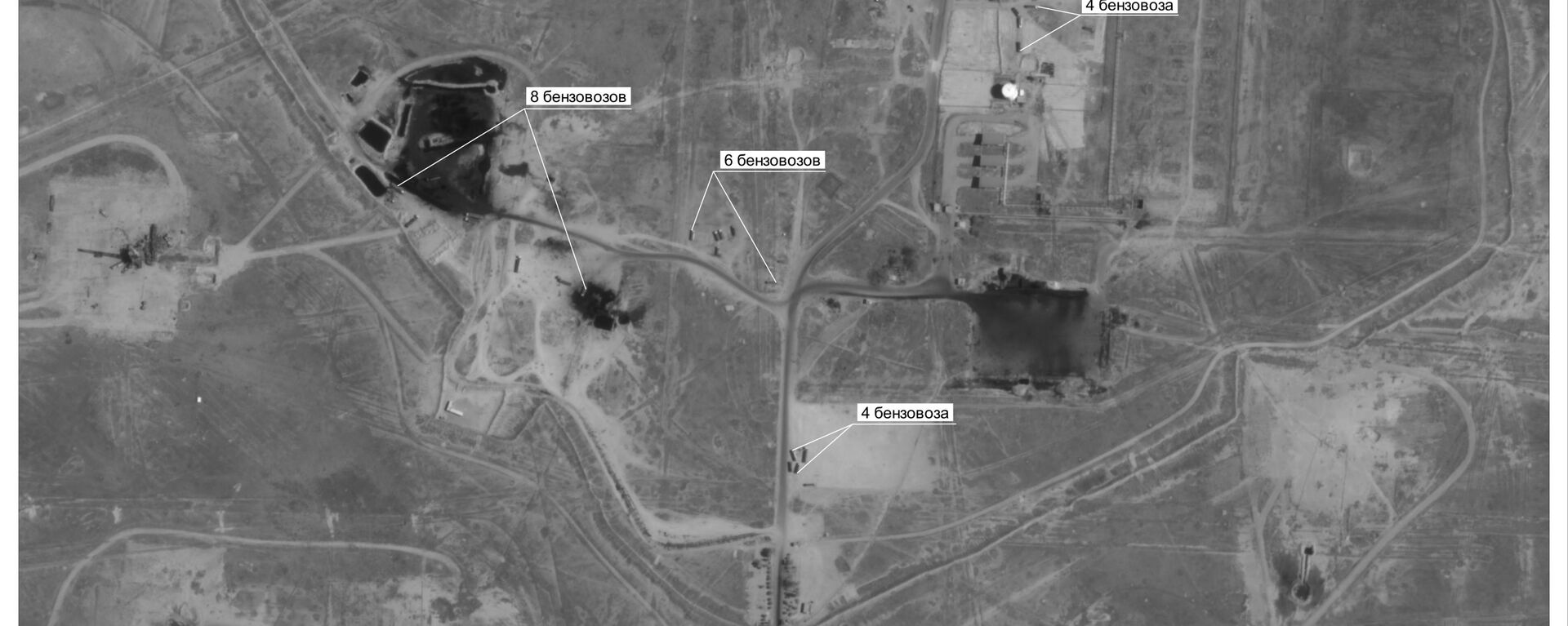US Will Only Be Thrown Out of Iraq Kicking and Screaming: Here's Why
18:58 GMT 09.01.2024 (Updated: 19:04 GMT 09.01.2024)

© AFP 2023 / HADI MIZBAN
Subscribe
The Iraqi government announced plans to start formal talks with Washington about ending the American-led anti-terrorism coalition’s mission in the country last week after the US killed a prominent militia leader in Baghdad. The Pentagon says the US isn’t going anywhere. A leading Middle East expert told Sputnik why the US is so reluctant to leave.
Pentagon spokesman Pat Ryder told reporters Monday that he was “not aware of any plans” by the US to withdraw from Iraq.
“We continue to remain very focused on the Defeat ISIS* mission under CJTF-OIR, as we advise and assist the Iraqis. And as you’ve heard us say many times before, we’re there at the invitation of the government of Iraq,” Ryder said.
“I’m not aware of any notifications by the Iraqi government to the Department of Defense. I would refer you to the State Department for any discussions about diplomatic discussions,” the spokesman added.
Ryder’s remarks follow an announcement by Iraqi Prime Minister Mohammed Shia al-Sudani last Friday indicating that he would set up a dialogue with Washington on the removal of all American forces from the country after a US airstrike killed militia commander Mushtaq Taleb al-Saidi. Al-Saidi was the leader of Harakat Hezbollah al-Nujaba, an Iraqi Popular Mobilization Forces-affiliated militia which helped rout Daesh* and other terrorists across Syria and Iraq between 2013 and 2017.
“It is a commitment that the government will not back down from, and will not neglect anything that would complete national sovereignty over the land, sky, and waters of Iraq,” Prime Minister al-Sudani emphasized in a statement.
The US strike on al-Saidi is the second time the Pentagon has attacked a top Baghdad-allied militia leader without consulting Iraq’s government or providing advance warning. Four years prior, on January 3, 2020, a US drone strike at Baghdad’ International Airport assassinated PMF deputy leader Abu Mahdi al-Muhandis and Iranian Islamic Revolutionary Guard Corps Quds Force leader Qasem Soleimani in what al-Sudani characterized in his remarks last week as a “heinous act” and “an attack” on Iraq and its anti-terror ally Iran.
Al-Muhandis and Soleimani’s killing in 2020 was followed by a demand from Iraq’s parliament that all US forces in the country be expelled, but Washington resisted and reclassified its operations from a ‘combat mission’ to a ‘train, assist and advise’ capacity, a move Iraq’s government at the time was ultimately forced to acquiesce to.
It remains to be seen whether the al-Sudani government, which came to power in October of 2022 after a year-long political crisis, will be able to succeed where its predecessors failed.
‘US Will Drag Its Feet’
If the US leaves Iraq it will not be by its own volition, Hossein Askari, professor emeritus at George Washington University specializing in Middle Eastern political and economic affairs, told Sputnik.
“The US will drag its feet. The US will be reluctant to leave Iraq for many reasons. First, America is afraid of increased cooperation between Iraq and Iran. It sees its presence in Iraq as the best strategy of preventing such a future. Second, it uses its Iraqi presence to obstruct an unimpeded highway between Iran and Syria, which in turn is important to Israel. Third, and related to my previous reason, America’s politicians are subservient to Israeli interests and Israel is obsessed about Iran,” Dr. Askari explained.
Furthermore, the academic believes that “behind the scenes,” the leaders of the Gulf Cooperation Council countries, while they may have major policy differences with Washington, are fearful of growing cooperation between Iran and Iraq amid their own military weakness, and would hence prefer that the US remains in Iraq indefinitely.
“Fifth, America has significant business interest in the GCC and business interests are afraid of a domino effect of a withdrawal from the Iraq, leading to leaving the Persian Gulf altogether and in turn further damaging America’s business interests,” Askari said.
Given these factors, getting the US to withdraw its contingent of about 2,500 troops completely from the country seems next to impossible, in the observer’s view.
Iraq would have to “publicly humiliate the US about not leaving in the eyes of the world before the US leaves Iraq altogether. Remember, America has spent much blood and treasure in Iraq. It needs to justify its historic mistake,” the scholar stressed.
As for America’s justification for its presence – fighting terrorism, Dr. Askari believes the US role is “marginal” at best, and constitutes more of an “excuse” than a genuine reason. “If you look back, General Soleimani was important in this fight [against terrorism, ed.], yet the United States assassinated him,” he recalled.
As for America’s justification for its presence – fighting terrorism, Dr. Askari believes the US role is “marginal” at best, and constitutes more of an “excuse” than a genuine reason. “If you look back, General Soleimani was important in this fight [against terrorism, ed.], yet the United States assassinated him,” he recalled.
Iraq’s government is taking a major risk in announcing plans to speak with Washington about the US-led coalition’s withdrawal, the academic said, since if Baghdad comes out and asks point blank and the US simply refuses it will potentially make “a mockery of Iraq’s sovereignty.”
Asked what options Baghdad has to really force Washington’s hand, Dr. Askari said “Iraqi politicians have to be united and demand US withdrawal and much more publicly. The US must be embarrassed in the eyes of the world as an occupying power before it leaves. Ultimately, Iraq may have to quietly threaten the US about taking it to the UN Security Council. Such a threat would immediately sway the US that it was time to leave because if Iraq made the threat public, then GCC rulers would be embarrassed and could follow and do the same.”
* Also known as Daesh or ISIL, a terrorist group which attempted to create a self-proclaimed ‘caliphate’ across the Middle East between 2014 and 2017 before being wiped off the map by an unlikely counterterrorism coalition.



